- Home
- Jack London
Hearts of Three Page 15
Hearts of Three Read online
Page 15
A crashing and scrambling in the brush diverted their train of thought, as descending the canyon slope on desperately slipping and sliding horses, appeared on the scene the haciendado with several followers. His greeting of the daughter of the Solanos was hidalgo-like and profound, and only less was the heartiness of his greeting to the two men for whom Enrico Solano had stood sponsor.
“Where is your noble father?” he asked Leoncia. “I have good news for him. In the week since I last saw you, I have been sick with fever and encamped. But by swift messengers, and favoring winds across Chiriqui Lagoon to Bocas del Toro, I have used the government wireless the Jefe of Bocas del Toro is my friend and have communicated with the President of Panama who is my ancient comrade whose nose I rubbed as often in the dirt as did he mine in the boyhood days when we were schoolmates and cubicle-mates together at Colon. And the word has come back that all is well; that justice has miscarried in the court at San Antonio from the too great but none the less worthy zeal of the Jefe Politico; and that all is forgiven, pardoned, and forever legally and politically forgotten against all of the noble Solano family and their two noble Gringo friends-”
Here, the haciendado bowed low to Henry and Francis. And here, skulking behind Leoncia’s uncle, his eyes chanced to light on the peon; and, so lighting, his eyes blazed with triumph.
“Mother of God, fhou has net forgotten me!” he breathed fervently, then turned to the several friends who accompanied him. “There he is, the creature without reason or shame who has fled his debt of me. Seize him! I shall put him on his back for a month from the beating he shall receive!”
So speaking, the haciendado sprang around the rump of Leoncia’s mule; and the peon, ducking under the mule’s nose, would have won to the freedom of the jungle, had not another of the haciendados, with quick spurs to his horse’s sides, cut him off and run him down. In a trice, used to just such work, the haciendados had the luckless wight on his feet, his hands tied behind him, a lead-rope made fast around his neck.
In one voice Francis and Henry protested.
“Senors,” the haciendado replied, “my respect and consideration and desire to serve you are as deep as for the noble Solano family under whose protection you are. Your safety and comfort are sacred to me. I will defend you from harm with my life. I am yours to command. My hacienda is yours, likewise all T possess. But this matter of this peon is entirely another matter. He is none of yours. He is my peon, in my debt, who has run away from my hacienda. You will understand and forgive me, I trust. This is a mere matter of property. He is my property.”
Henry and Francis glanced at each other in mutual perplexity and indecision. It was the law of the land, as they thoroughly knew.
“The Cruel Just One did remit my debt, as all here will witness,” the peon whispered.
“It is true, the Cruel Justice remitted his debt,” Leoncia verified.
The haciendado smiled and bowed low.
“But the peon contracted with me,” he smiled. “And who is the Blind Brigand that his foolish law shall operate on my plantation and rob me of my rightful two hundred and fifty pesos?”
“He’s right, Leoncia,” Henry admitted.
“Then will I go back to the high Cordilleras,” the peon asserted. “Oh, you men of the Cruel Just One, take me back to the Cordilleras.”
But the stern leader shook his head.
“Here you were released. Our orders went no further. No further jurisdiction have we over you. We shall now bid farewell and depart.”
“Hold on!” Francis cried, pulling out his check book and beginning to write. “Wait a moment. I must settle for this peon now. Next, before you depart, I have a favor to ask of you.”
He passed the check to the haciendado, saying:
“I have allowed ten pesos for the exchange.”
The haciendado glanced at the check, folded it away in his pocket, and placed the end of the rope around the wretched creature’s neck in Francis’ hand.
“The peon is now yours,” he said.
Francis looked at the rope and laughed.
“Behold! I now own a human chattel. Slave, you are mine, my property now, do you understand?”
“Yes, Senor,” the peon muttered humbly. “It seems, when I became mad for the woman I gave up my freedom for, that God destined me always afterward to��� be the property of some man. The Cruel Just One is right. It is God’s punishment for mating outside my race.”
“You made a slave of yourself for what the world has always considered the best of all causes, a woman,” Francis observed, cutting the thongs that bound the peon’s hands. “And so, I make a present of you to yourself.” So saying, he placed the neck-rope in the peon’s hand. “Henceforth, lead yourself, and put not that rope in any man’s hand.”
While the foregoing had been taking place, a lean old man, on foot, had noiselessly joined the circle. Maya Indian he was, pure-blooded, with ribs that corrugated plainly through his parchment ��� like skin. Only a breechclout covered his nakedness. His unkempt hair hung in dirty ��� gray tangles about his face, which was high-cheeked, and emaciated to cadaverousness. Strings of muscles showed for his calves and biceps. A few scattered snags of teeth were visible between his withered lips. The hollows under his cheek-bones were prodigious. While his eyes, beads of black, deep-sunk in their sockets, burned with the wild light of a patient in fever.
He slipped eel-like through the circle and clasped the peon in his skeleton-like arms.
“He is my father,” proclaimed the peon proudly. “Look at him. He is pure Maya, and he knows the secrets of the Mayas.”
And while the two re-united ones talked endless explanations, Francis preferred his request to the sackcloth leader to find Enrico Solano and his two sons, wandering somewhere in the mountains, and to tell them that they were free of all claims of the law and to return home.
“They have done no wrong?” the leader demanded. “No; they have done no wrong,” Francis assured him. “Then it is well. I promise you to find them immediately, for we know the direction of their wandering, and to send them down to the coast to join you.”
“And in the meantime shall you be my guests while you wait,” the haciendado invited eagerly. “There is a freight schooner at anchor in Juchitan Inlet now oS my plantation, and sailing for San Antonio. I can hold her until the noble Enrico and his sons come down from the Cordilleras.”
“And Francis will pay the demurrage, of course,” Henry interpolated with a sly sting that Leoncia caught, although it missed Francis, who cried joyously:
“Of course I will. And it proves my contention that a checkbook is pretty good to have anywhere.”
To their surprise, when they had parted from the sackcloth men, the peon and his Indian father attached themselves to the Morgans, and journeyed down through the burning oilfields to the plantation which had been the scene of the peon’s slavery. Both father and son were unremitting in their devotion, first of all to Francis, and, next, to Leoncia and Henry. More than once they noted father and sen in long and earnest conversations; and, after Enrico and his sons had arrived, when the party went down to the beach to board the waiting schooner, the peon and his Maya parent followed along. Francis essayed to say farewell to them on the beach, but the peon stated that the pair of them were likewise journeying on the schooner.
“I have told you that I was not a poor man,” the peon explained, after they had drawn the party aside from the waiting sailors. “This is true. The hidden treasure of the Mayas, which the conquistadores and the priests of the Inquisition could never find, is in my keeping. Or, to be very true, is in my father’s keeping. He is the descendant, in the straight line, from the ancient high priest of the Mayas. He is the last high priest. He and I have talked much and long. And we are agreed that riches do not make life. You bought me for two hundred and fifty pesos, yet you made me free, gave me back to myself. The gift of a man’s life is greater than all the treasure in the world. So are we agreed
, my father and I. And so, since it is the way of Gringos and Spaniards to desire treasure, we will lead you to the Maya treasure, my father and I, my father knowing the way. And the way into the mountains begins from San Antonio and not from Juchitan.”
“Does your father know the location of the treasure? just where it is?” Henry demanded, with an aside to Francis that this was the very Maya treasure that had led him to abandon the quest for Morgan’s gold on the Calf and to take to the mainland.
The peon shook his head.
“My father has never been to it. He was not interested in it, caring not for wealth for himself. Father, bring forth the tale written in our ancient language which you alone of living Mayas can read.”
From within his loin-cloth the old man drew forth a dirty and much-frayed canvas bag. Out ot this he pulled what looked like a snarl of knotted strings. But the strings were twisted sennit of some fibrous forest bark, so ancient that they threatened to crumble as he handled them, while from under the touch and manipulation of his fingers a fine powder of decay arose. Muttering and mumbling prayers in the ancient Maya tongue, he held up the snarl of knots, and bowed reverently before it ere he shook it out.
“The knot-writing, the lost written language of the Mayas,” Henry breathed softly. “This is the real thing, if only the old geezer hasn’t forgotten how to read it.”
All heads bent curiously toward it as it was handed to Francis. It was in the form of a crude tassel, composed of many thin, long strings. Not alone were the knots, and various kinds of knots, tied at irregular intervals in the strings, but the strings themselves were of varying lengths and diameters. He ran them through his fingers, mumbling and muttering.
“He reads!” cried the peon triumphantly. “All our old language is there in those knots, and he reads them as any man may read a book.”
Bending closer to observe, Francis and Leoncia’s hair touched, and, in the thrill of the immediately broken contact, their eyes met, producing the second thrill as they separated. But Henry, all eagerness, did not observe. He had eyes only for the mystic tassel.
“What d’you say, Francis?” he murmured. “It’s big! It’s big!”
“But New York is beginning to call,” Francis demurred. “Oh, not its people and its fun, but its business,” he added hastily, as he sensed Leoncia’s unuttered reproach and hurt. “Don’t forget, I’m mixed up in Tampico Petroleum and the stock market, and I hate to think how many millions are involved.”
“Hell’s bells!” Henry ejaculated. “The Maya treasure, if a tithe of what they say about its immensity be true, could be cut three ways between Enrico, you and me, and make each of us richer than you are now.”
Still Francis was undecided, and, while Enrico expanded on the authenticity of the treasure, Leoncia managed to query in an undertone in Francis’ ear:
“Have you so soon tired of ��� of treasure-hunting?”
He looked at her keenly, and down at her engagement ring, as he answered in the same low tones:
“How can I stay longer in this country, loving you as I do, while you love Henry?”
It was the first time he had openly avowed his love, and Leoncia knew the swift surge of joy, followed by the no less swift surge of mantling shame that she, a woman who had always esteemed herself good, could love two men at the same time. She glanced at Henry, as if to verify her heart, and her heart answered yes. As truly did she love Henry as she did Francis, and the emotion seemed similar where the two were similar, different where they were different.
“I’m afraid I’ll have to connect up with the Angeliquc, most likely at Bocas del Toro, and get away,” Francis told Henry. “You and Enrico can find the treasure and split it two ways.”
But the peon, having heard, broke into quick speech with his father, and, next, with Henry.
“You hear what he says, Francis,” the latter said, holding up the sacred tassel. “You’ve got to go with ‘us. It is you he feels grateful to for his son. He isn’t giving the treasure to us, but to you. And if you don’t go, be won’t read a knot of the writing.”
But it was Leoncia, looking at Francis with quiet wistfulness of pleading, seeming all but to say, “Please, for my sake,” who really caused Francis to reverse his decision.
CHAPTER XIII
A WEEK later, out of San Antonio on a single day, three separate expeditions started for the Cordilleras. The first, mounted on mules, was composed of Henry, Francis, the peon and his ancient parent, and of several of the Solano peons, each leading a pack-mule, burdened with supplies and outfit. Old Enrico Solano, at the last moment, had been prevented from accompanying the party because of the bursting open of an old wound received hi the revolutionary fighting of his youth.
Up the main street of San Antonio the cavalcade proceeded, passing the jail, the wall of which Francis had dynamited, and which was only even then being tardily rebuilt by the Jefe’s prisoners. Torres, sauntering down the street, the latest wire from Regan tucked in his pocket, saw the Morgan outfit with surprise. “Whither away, senors?” he called.
So spontaneous that it might have been rehearsed, Francis pointed to the sky, Henry straight down at the earth, the peon to the right, and his father to the left. The curse from Torres at such impoliteness, caused all to burst into laughter, in which the mule-peons joined as they rode along.
Within the morning, at the time of the siesta hour, while all the town slept, Torres received a second surprise. This time it was the sight of Leoncia and her youngest brother, Ricardo, on mules’, leading a third that was evidently loaded with a camping outfit.
The third expedition was Torres’ own, neither more nor less meager than Leoncia’s, for it was composed only of himself and one, Jose Mancheno, a notorious murderer of the place whom Torres, for private reasons, had saved from the buzzards of San Juan. But Torres’ plans, in the matter of an expedition, were more ambitious than they appeared. Not far up the slopes of the Cordilleras dwelt the strange tribe of the Caroos. Originally founded by runaway negro slaves of Africa and Carib slaves of the Mosquito Coast, the renegades had perpetuated themselves with stolen women of the tierra caliente and with fled women slaves like themselves. Between the Mayas beyond, and the government of the coast, this unique colony had maintained itself in semi-independence. Added to, in later days, by runaway Spanish prisoners, the Caroos had become a hotchpotch of, bloods and breeds, possessing a name and a taint so bad that the then governing power of Colombia, had it not been too occupied with its own particular political grafts, would have sent armies to destroy the pest-hole. And in this pest-hole of the Caroos Jose” Mancheno had been born of a Spanish ��� murderer father and a mestizamurderess mother. And to this pest-hole Jose Mancheno was leading Torres in order that the commands of Thomas Kegan of Wall Street might be carried out.
“Lucky we found him when we did,” Francis told Henry, as they rode at the rear of the last Maya priest.
“He’s pretty senile,” Henry nodded. “Look at him.”
The old man, as he led the way, was forever pulling out the sacred tassel and mumbling and muttering as he fingered it.
“Hope the old gentleman doesn’t wear it out,” was Henry’s fervent wish. “You’d think he’d read the directions once and remember them for a little while instead of continually pawing them over.”
They rode out through the jungle into a clear space that looked as if at some time man had hewn down the jungle and fought it back. Beyond, by the vista afforded by the clearing, the mountain called Blanco Kovalo towered high in the sunny sky. The old Maya halted his mule, ran over certain strings in the tassel, pointed at the mountain, and spoke in broken Spanish:
“It says: In the footsteps of the God wait till the eyes of Chia flash.”
He indicated the particular knots of a particular string as the source of his information.
“Where are the footsteps, old priest?” Henry demanded, staring about him at the unbroken sward.
But the old man started h
is mule, and, with a tattoo of bare heels on the creature’s ribs, hastened it on across the clearing and into the jungle beyond.
“He’s like a hound on the scent, and it looks as if the scent is getting hot,” Francis remarked.
At the end of half a mile, where the jungle turned to grass-land on swift-rising slopes the old man forced his mule into a gallop which he maintained until he reached a natural depression in the ground. Three feet or more in depth, of area sufficient to accommodate a dozen persons in comfort, its form was strikingly like that which some colossal human foot could have made.
“The footstep of the God,” the old priest proclaimed solemnly, ere he slid off his mule and prostrated himself in prayer. “In the footstep of the God must we wait till the eyes of Chia flash so say the sacred knots.”
“Pretty good place for a meal,” Henry vouchsafed, looking down into the depression. While waiting for the mumbo��� jumbo foolery to come oft, we might as well stay our stomachs.”
“If Chia doesn’t object,” laughed Francis. And Chia did not object, at least the old priest could not find any objection written in the knots.
While the mules were being tethered on the edge of the first break of woods, water, was fetched from a nearby spring and a fire built in the footstep. The old Maya seemed oblivious of everything, as he mumbled endless prayers and ran the knots over and over.
“If only he doesn’t blow up,” Francis said. “I thought he was wild-eyed the first day we met him up in Juchitan,” concurred Henry. “But it’s nothing to the way his eyes are now.”
Here spoke the peon, who, unable to understand a word of their English, nevertheless sensed the drift of it.
“This is very religious, very dangerous, to have anything to do with the old Maya sacred things. It is the death-road. My father knows. Many men have died. The deaths are sudden and horrible. Even Maya priests have died. My father’s father so died. He, too, loved a woman of the tierra caliente. And for love of her, for gold, he sold the Maya secret and by the knot-writing led tierra caliente men to the treasure. He died. They all died. My father does not like the women of the tierra caliente now that he is old. He liked them too well in his youth, which was his sin. And he knows the danger of leading you to the treasure. Many men have sought during the centuries. Of those who found it, not one came back. It is said that even conquist adores and pirates of the English Morgan have won to the hidingplace and decorated it with their bones.”

 The Son of the Wolf
The Son of the Wolf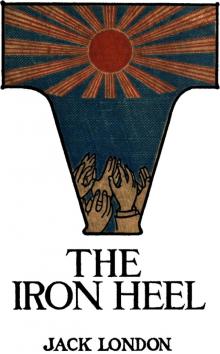 The Iron Heel
The Iron Heel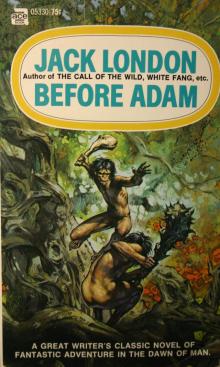 Before Adam
Before Adam Smoke Bellew
Smoke Bellew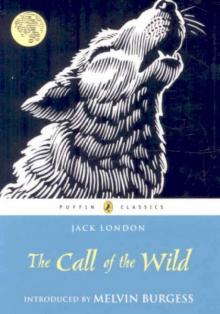 The Call of the Wild
The Call of the Wild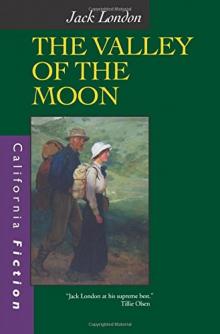 The Valley of the Moon Jack London
The Valley of the Moon Jack London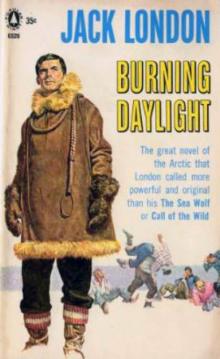 Burning Daylight
Burning Daylight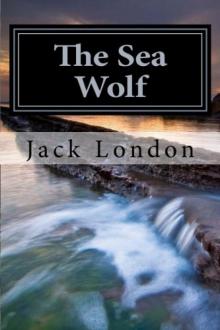 The Sea Wolf
The Sea Wolf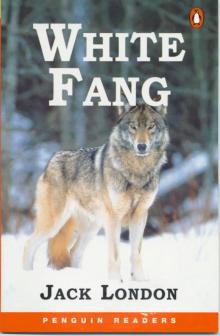 White Fang
White Fang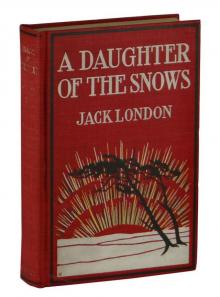 A Daughter of the Snows
A Daughter of the Snows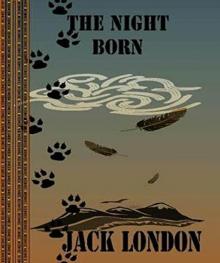 The Night-Born
The Night-Born A Son Of The Sun
A Son Of The Sun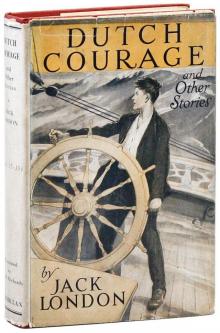 Dutch Courage and Other Stories
Dutch Courage and Other Stories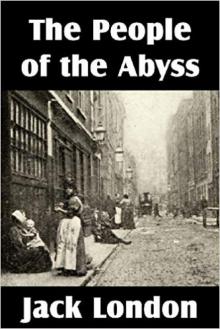 The People of the Abyss
The People of the Abyss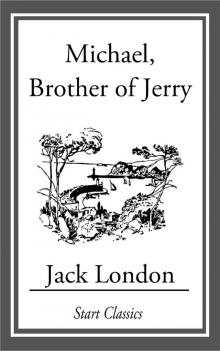 Michael, Brother of Jerry
Michael, Brother of Jerry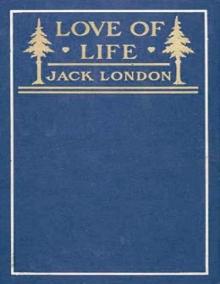 Love of Life, and Other Stories
Love of Life, and Other Stories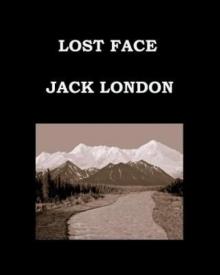 Lost Face
Lost Face The Road
The Road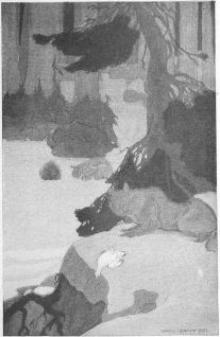 Love of Life
Love of Life The Turtles of Tasman
The Turtles of Tasman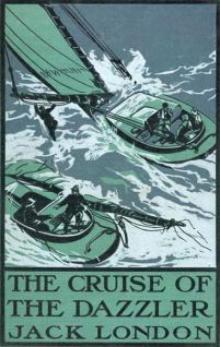 The Cruise of The Dazzler
The Cruise of The Dazzler The Heathen
The Heathen The Scab
The Scab The Faith of Men
The Faith of Men Adventure
Adventure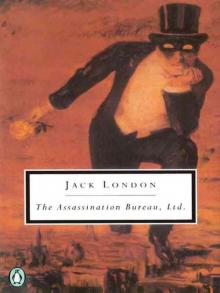 The Assassination Bureau, Ltd.
The Assassination Bureau, Ltd.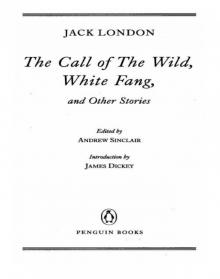 The Call of the Wild, White Fang, and Other Stories
The Call of the Wild, White Fang, and Other Stories The Call of the Wild and Selected Stories
The Call of the Wild and Selected Stories Jerry of the Islands
Jerry of the Islands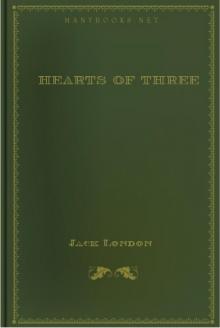 Hearts of Three
Hearts of Three The House of Pride
The House of Pride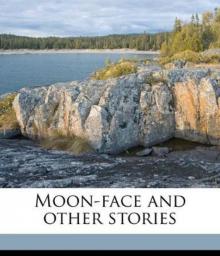 Moon-Face and Other Stories
Moon-Face and Other Stories Children of the Frost
Children of the Frost South Sea Tales
South Sea Tales The Strength of the Strong
The Strength of the Strong The Jacket (The Star-Rover)
The Jacket (The Star-Rover) The Little Lady of the Big House
The Little Lady of the Big House John Barleycorn
John Barleycorn ADaugter of Snows
ADaugter of Snows The Mutiny of the Elsinore
The Mutiny of the Elsinore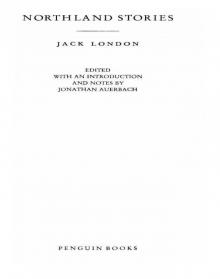 Northland Stories
Northland Stories Tales of the Fish Patrol
Tales of the Fish Patrol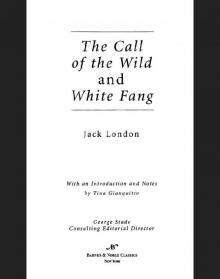 Call of the Wild and White Fang (Barnes & Noble Classics Series)
Call of the Wild and White Fang (Barnes & Noble Classics Series) The Valley of the Moon
The Valley of the Moon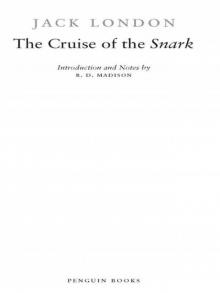 The Cruise of the Snark
The Cruise of the Snark The Game
The Game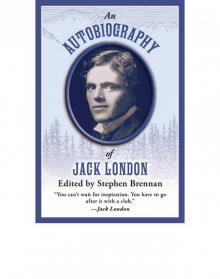 An Autobiography of Jack London
An Autobiography of Jack London